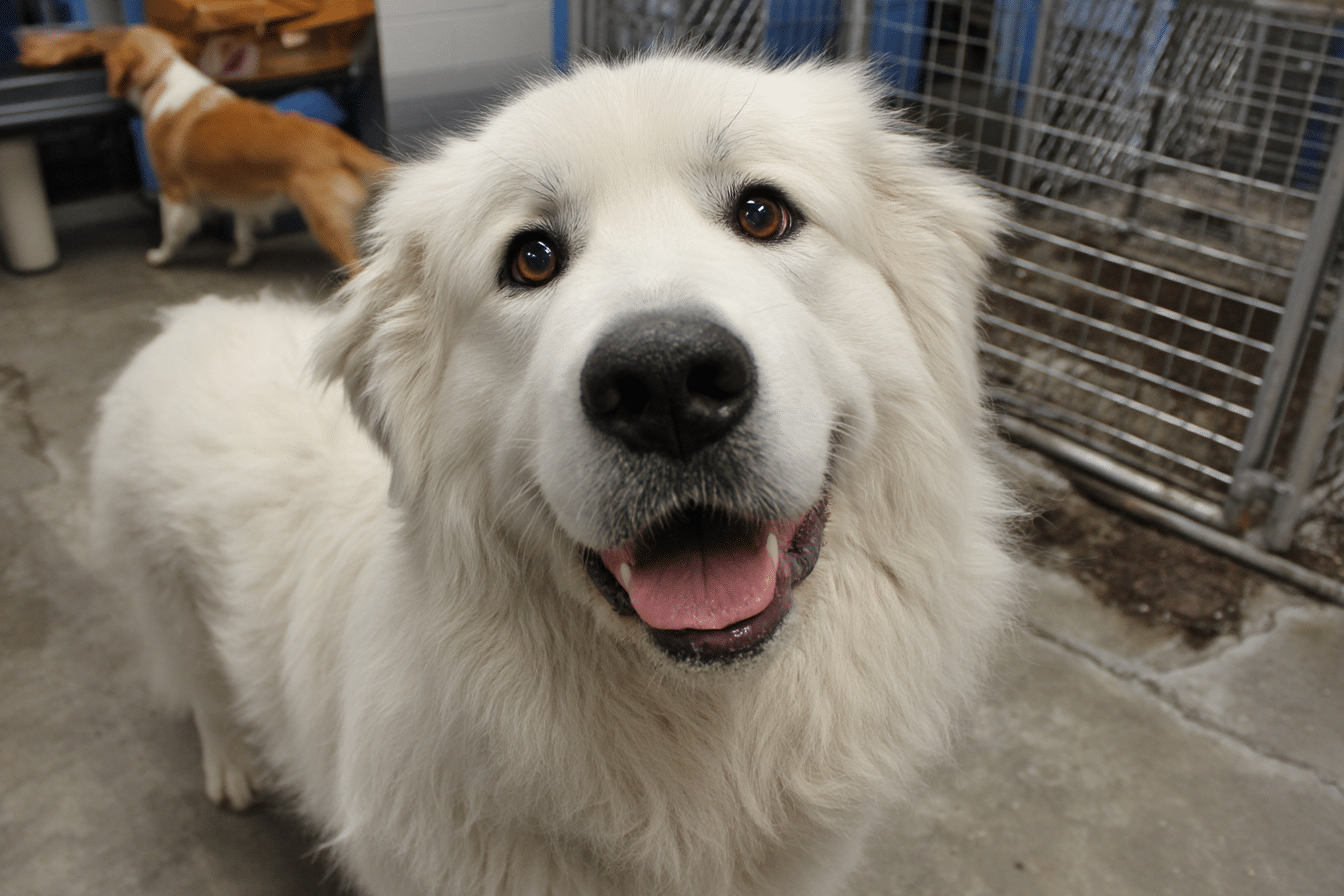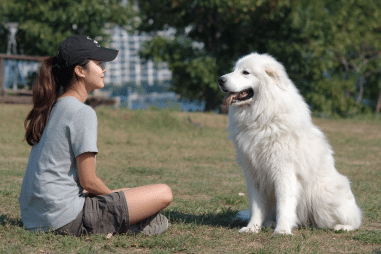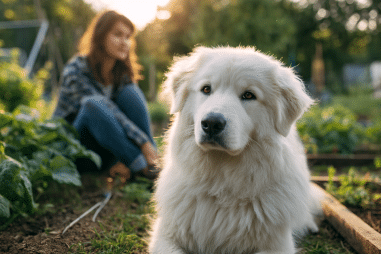Adopting a Great Pyrenees rescue dog is not only a generous act of kindness but also a wonderful opportunity to bring a loyal and gentle companion into your life. These majestic dogs are known for their calm nature, protective instincts, and affectionate personalities. However, rescuing a Great Pyrenees comes with its own unique set of challenges and responsibilities. Before you open your home to a rescue, it’s important to understand what this breed needs and how best to support them through the transition. This guide will walk you through essential tips and insights to help ensure your adoption journey is successful and rewarding.
Reasons to Consider Adoption
Choosing to adopt a Great Pyrenees from a rescue organization instead of purchasing from a breeder offers numerous benefits. First and foremost, adoption saves lives. Many Great Pyrenees end up in shelters or rescues through no fault of their own, often due to owner relocation, changes in lifestyle, or unforeseen circumstances. Giving these dogs a second chance provides them with a fresh start in a loving home.
Additionally, rescue dogs often come with some basic training and socialization, helping ease the transition into family life. Adopting also helps combat the demand for puppy mills and irresponsible breeding practices by reducing the number of dogs bred purely for profit. Finally, the bond formed with a rescue dog can be incredibly special. Many adopters report feeling a deep sense of fulfillment and connection, knowing they made a significant and positive difference in their dog’s life.
Assessing Your Readiness for a Great Pyrenees
Before bringing home a Great Pyrenees rescue, it’s vital to honestly evaluate your lifestyle and readiness. This breed is large, strong, and requires a particular type of environment to thrive. They are known for their calm and patient demeanor but also have a strong protective instinct and can be independent thinkers.
Consider the following questions:
- Do you have enough space? Great Pyrenees dogs need room to roam and exercise. They are not well-suited to small apartments or homes without yard access.
- Can you commit to daily exercise and mental stimulation? These dogs do best with regular walks, playtime, and activities that engage their minds.
- Are you prepared for grooming? Great Pyrenees have thick double coats that shed heavily, especially seasonally, and require regular brushing to prevent mats and maintain skin health.
- How much time can you dedicate to training? Patience and consistency are key to managing their independent streak and helping them adjust to new routines.
Being honest with yourself about these factors will set you and your future companion up for success.
How to Find Reputable Rescue Organizations
Finding the right rescue group is crucial for a positive adoption experience. Start by researching organizations that specialize in Great Pyrenees or large breed dogs. Many rescue groups have websites listing available dogs, adoption processes, and resources about the breed.
When selecting a rescue, look for credentials and reviews from previous adopters. Good rescues screen adopters carefully to ensure their dogs go to responsible, committed homes and provide ongoing support after adoption. They usually require an application, home visit, and an interview, which helps match you with a dog suited to your lifestyle.
Here are a few tips when working with rescue organizations:
- Ask detailed questions about the dog’s history, health, temperament, and any known behavioral issues.
- Request to meet the dog more than once if possible, to see how they respond to you and your family over time.
- Check if the rescue offers post-adoption support, such as access to trainers or behaviorists.
- Be patient — sometimes the perfect match takes time, and it’s better to wait than rush into an unsuitable adoption.
Preparing Your Home for a Rescue Dog
Great Pyrenees dogs appreciate a calm, secure environment that respects their size and needs. Preparing your home before bringing your rescue dog home helps minimize stress for everyone.
Set up a comfortable space where your dog can retreat to feel safe, such as a quiet corner with a cozy dog bed. Make sure this area is free from heavy foot traffic and loud noises.
Since these dogs are strong and can be stubborn, it’s important to dog-proof your yard and living areas to prevent escape or accidents. Secure fencing should be high and sturdy enough to withstand their size. Remove items they might chew on or that could be hazardous.
Gather essential supplies, including:
- Quality food and water bowls
- A durable collar and leash
- Grooming tools like brushes and nail clippers
- Dog toys and chews
- Training treats and aids
Lastly, communicate with all household members about the dog’s needs and establish consistent rules to provide structure for the new family member.
Transitioning and Training After Adoption
The transition from rescue to home can be overwhelming for a Great Pyrenees. Many come from uncertain environments and may have experienced trauma, neglect, or abandonment, so patience and gentle handling are essential.
When you bring your dog home:
- Allow them to explore the space at their own pace, and don’t force interactions.
- Stick to a routine for feeding, walks, and bedtime to provide a sense of security.
- Introduce new family members gradually, and supervise all interactions, especially with children or other pets.
Training should focus on positive reinforcement rather than punishment. Great Pyrenees are intelligent but can be independent and stubborn, so consistency and encouragement work best. Start with essential commands such as sit, stay, come, and leash walking.
Socialization is also important, helping your dog get used to new people, animals, and environments safely and gradually. Consider enrolling in obedience classes or working with a trainer experienced with this breed for extra guidance.
Long-Term Commitment and Care
Adopting a Great Pyrenees is a long-term commitment, often spanning 10 to 12 years or more. Providing consistent care throughout your dog’s life ensures they remain healthy, happy, and well-adjusted.
Regular veterinary checkups are essential to monitor your dog’s health and catch any issues early. Vaccinations, flea and tick prevention, and dental care should be part of an ongoing routine.
Maintain grooming practices to keep their thick coat in good condition and reduce shedding around your home. Regular exercise, mental enrichment, and plenty of affection will support their overall wellbeing.
Be prepared for the challenges that come with larger breeds, such as the costs of food, medical care, and grooming supplies. Planning ahead financially and emotionally helps avoid surprises and strengthens your ability to provide lifelong care.
Supporting Your Rescue’s Emotional Needs
Many rescue dogs carry emotional scars, and Great Pyrenees are no exception. These dogs often bond deeply with their families and can be sensitive to changes in their environment.
Provide plenty of love and reassurance, especially during the first few weeks. Understanding their body language and recognizing signs of stress or anxiety can help you respond appropriately.
Consider the following to support your rescue’s emotional health:
- Establish safe spaces where your dog can retreat when feeling overwhelmed.
- Maintain a predictable daily schedule to help them feel secure.
- Use calm, gentle tones during interactions and training.
- Socialize gradually, respecting their individual pace and comfort level.
- Provide mental stimulation with puzzle toys, scent work, or interactive games.
- Seek professional help if behavioral issues arise, such as anxiety or aggression, to address them compassionately and effectively.
Patience and empathy go a long way in helping your rescue Great Pyrenees feel safe and loved in their new home.
Embarking on a Life-Changing Journey
Rescuing a Great Pyrenees is a beautiful and life-affirming journey filled with moments of joy, challenge, and growth. By understanding the breed’s unique traits and needs, preparing thoughtfully, and committing wholeheartedly, you can offer a deserving dog a forever home where they will thrive.
Remember, adoption is not just about giving but also receiving—a loyal companion, a protector, and a gentle giant who will enrich your life in countless ways. With patience, kindness, and informed care, your Great Pyrenees rescue will flourish and become an irreplaceable part of your family.







